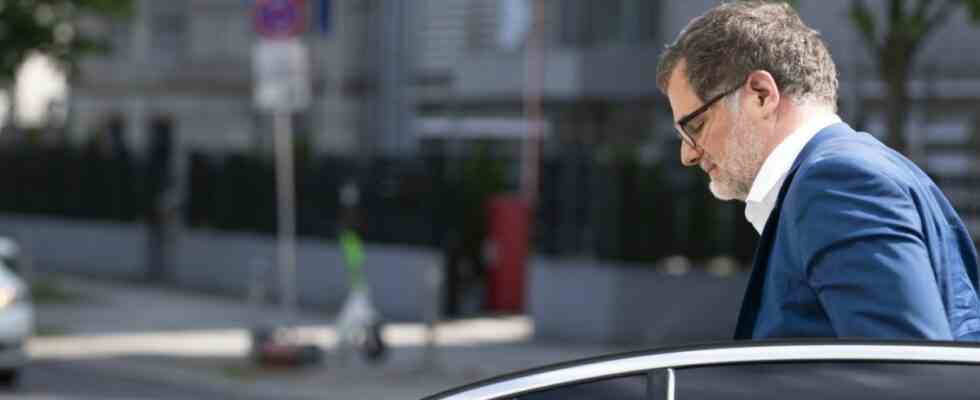Last weekend in Munich: a few dozen members of the SPD parliamentary group met in a hotel in the north of the city, in the Freisinger Hof. You belong to the Seeheimer circle, the conservative wing. They form the second mainstream alongside the party left. They are the most vehement Olaf Scholz supporters in Parliament, his fan club, if you will.
The people from Seeheim like to call their approach pragmatic and generally act quietly and calmly. The two-day retreat is about internal and external security. The war in Ukraine changed the situation in the world. The parliamentarians are upset, not only because of the war, but also because of the consequences.
In their constituencies, the citizens present them with their energy bills: advance payments that have suddenly multiplied, sometimes absurdly high sums. “The hut is on fire,” says one of the residents of Seeheim. It doesn’t take long before this tension is released at the closed meeting.
That happens – according to several SZ participants – when Wolfgang Schmidt, head of the Chancellery and Scholz’s closest confidant, is connected to the MPs. It’s about dealing with the crisis. The Chancellery refers to the three relief packages with a total volume of almost 100 billion euros that the traffic light has launched. But that’s not enough for the round in Munich, for many of the Seeheimers. They would like to assure their supporters in the constituencies that the energy price cap is coming, so that the citizens will only have to pay part of the increased costs.
A concept for this is already taking shape for electricity, but for gas and heating costs things are different. The traffic light partners only agreed to set up a group of experts. With the gas price cap, should something like this happen, the state would probably have to step in with billions of euros. This in turn could mean that Finance Minister Christian Lindner from the FDP cannot comply with the debt brake and would have to give up one of his key promises.
Does the chancellery want to wait until the state elections?
On October 9th, Lower Saxony will elect a new state parliament. The FDP is in polls at six, times seven percent. It would probably not remain without consequences for the election if Lindner had to correct his policy. Does the Chancellery possibly take state elections into account and therefore not come to more far-reaching decisions earlier? This is exactly the impression several participants have in Schmidt’s remarks.
They unanimously confirm that the Chancellery also has an eye on the election and the situation of the FDP. Scholz and Schmidt are concerned with keeping the coalition together in this difficult situation. It would not help anyone if the store broke up – that was Schmidt’s message. And: Further announcements are not to be expected for the time being. When asked by SZ, Schmidt said that he did not comment on internal meetings.
The mood is described by participants as “heated”. Holger Becker is a member of parliament from Jena, he founded a company himself. He knows the situation. The company he co-founded, for example, should in future pay 100,000 euros for electricity per month as a deduction instead of the previous 20,000 euros. Such increases presented companies with existential difficulties. Citizens see “a wave” piling up in front of them, “and have no idea how to deal with this situation”.
If it were up to Becker, Scholz would have to stand up and make “an immediate commitment to the energy price cap for electricity and gas”. “A commitment that gives security.” He and other MPs are thinking of the appearance of Chancellor Angela Merkel and Finance Minister Peer Steinbrück (SPD) when they assured worried citizens during the banking crisis of 2008 that their savings were safe. “What we need now is a whatever-it-takes speech by the chancellor,” says Becker. Election dates should “play no role”. Schmidt, it is said, felt a real headwind in Munich.
The debate has now covered the entire group that met on Tuesday. “Even if the details and the implementation of a gas price cap are still being clarified in the commission of experts that has been set up, the federal government and the Minister for Economic Affairs must already commit to a gas price cap,” says Jessica Rosenthal of the SZ, the Juso boss, who is on the left in the parliamentary group wing belongs. Parliamentary secretary Katja Mast said on Wednesday: “We need a solution quickly.”

